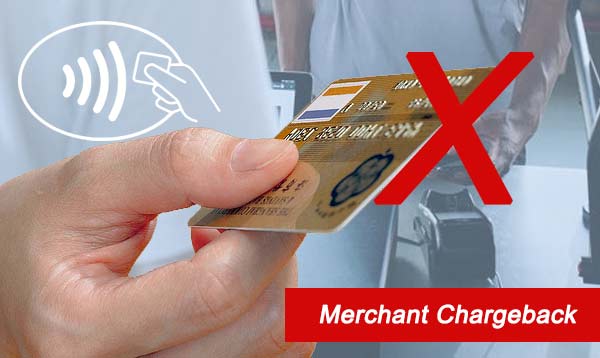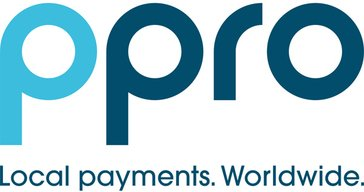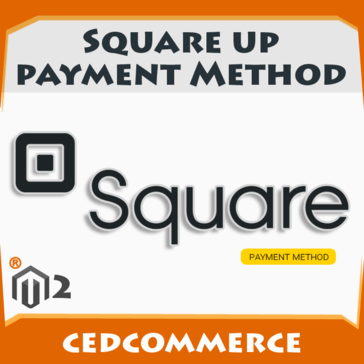Merchant Chargeback
Merchant Chargeback Table of Contents
- Merchant Chargeback
- What Is Chargeback?
- What Does A Chargeback Do?
- What Does Chargebacks Mean for your business?
- Rules And Regulations Surrounding Chargebacks
- Purpose Of Chargebacks
- When Can Consumers Legally Use Chargebacks?
- When Should I File A Chargeback
- How Did Chargebacks Become Friendly Fraud
- Chargebacks Costs Consequences
- Overview of Merchant Chargeback
- Best Payment gateway Solution by Rating
- Best Payment gateway Solution by Price
- Best Payment gateway Solution by Rated Features
- Check Your Payment gateway Solution Offers Round The Clock Support
- Make Sure Your Payment gateway Solution Offers The Features You Need
- Best Payment gateway Software Solution Verdict
- Payment gateway Software Frequently Asked Questions
- What is the best Payment gateway Solution?
- What is the cheapest Payment gateway Solution?
- Is there a free Payment gateway Solution?
- View all of the top Payment gateway Software Solutions
- Payment gateway Alternatives
- Payment gateway VS Side by Side Comparisons

Merchant Chargeback
What Is Chargeback?
A chargeback is basically a return of funds to an intended payer of a credit card purchase, specifically a credit card company. In the credit card industry this is essentially where the credit card company that issued the card for your purchase will request that you return it because they saw something that they did not like. The chargeback process is where the credit card company will investigate your complaint and see if they can resolve it by removing the item from your credit history or if they have to charge you for it again. If you are careful when purchasing things on the internet and using chargebacks, you can actually prevent the chargebacks from happening to you. This article will be discussing how to do this.
If you go to a site that sells Chargebacks you will see two tabs separated by a line through them. On the left side of the tab is the name of the merchant, and on the right side is the issuing bank's name. Under the names there is usually a telephone number of the merchant or the bank that issued the card for you to call in case there is a problem with the transaction. If there is a problem then the phone number will be listed so you can call in and ask whoever answered the phone what the status of the chargeback was. If the merchant is the same company that issued the card for you then the process should go smoothly, but if it is different then you need to get more information on the situation.
What Does A Chargeback Do?
What is a chargeback and what does it do? Chargebacks occur when a customer does not like the way they were charged for their purchase. Usually the customer does not realize that the merchant or bank they made the purchase through did not receive the agreed upon amount in full. They will dispute the transaction and the credit bureaus will investigate the charges being made. If the investigation shows that there was an incorrect transaction the credit bureaus will initiate the appropriate actions.
What Does Chargebacks Mean for your business?
Many small businesses are not aware of what exactly chargebacks are and the implications that they have on their businesses. If you run a business then you will most likely be bound by certain rules and regulations and these can include chargebacks. For example, if you overcharged your customers or failed to deliver goods on time then you could end up having to pay back any outstanding money that you owe to your customers.
Rules And Regulations Surrounding Chargebacks
It is important that all businesses know the rules and regulations surrounding chargebacks. You should be able to understand what they are so that you can take the necessary steps to try and get your money back from your customers. For many business owners chargebacks are caused due to the fact that the customer simply did not like the service that they received from your business. They either did not receive the product that they ordered in the right way, did not like the response that they got from your customer service department or even requested for a refund. If you are in the process of setting up a new credit card processing system then you will need to make sure that your software package has some sort of dispute response or help desk. This can help you to deal with any customer complaints effectively.
Purpose Of Chargebacks
The purpose of chargebacks in business is to ensure that a business's records are kept correctly, and that the money owed to the customers or clients in a business is appropriately paid. As a small business owner or manager you know that your company's credit has an important role in keeping your company successful. You also know that if you do not pay your bills on time, this can negatively impact your credit score, which will make it more difficult to get loans from future lenders. There are times when a business may receive the funds they are owed from a customer but elect to hold the funds until their next billing cycle occurs.
As a business owner or manager, understanding the why and how of chargebacks will help you understand how to deal with them. By knowing the purpose of chargebacks in business you will be able to prevent these issues from occurring, and you will be able to address them in the most appropriate way. By addressing chargebacks in business correctly, you will be building a solid record that shows your credit history is sound, and you will be proving to future consumers that you are responsible with your credit card information.
When Can Consumers Legally Use Chargebacks?
Credit card issuers and banks have long known that when it comes to unauthorized transactions, there is no middleman between the consumer and the entity that are charging the debt for the goods or services. When a chargeback is initiated by the consumer, then the bank or credit card issuer can respond by taking possession of the property and holding the consumer responsible for the original debt. In most cases, the bank or issuing card company will attempt to contact the consumer, in an attempt to work out an amicable resolution to the dispute.
Chargebacks are usually initiated for a number of reasons that range from the seemingly innocent to the legally malicious. For example, there may be an error in billing, which could result in the improperly charged account being re-notified, or even charged again for the same item in a different store. Another common reason for a chargeback is when a consumer overcharges the account, an act which is not repeated after rebates have been applied. Furthermore, some chargebacks can also be initiated due to fraud, such as if a user has used a stolen credit card to make purchases. Regardless of the cause of the chargeback, the bank or issuer will be conducting a review to determine if there was fraudulent activity and if so, whether the original terms of the agreement were complied with.
Many people are familiar with the concept of chargebacks, but many do not know what their legal status is. When it comes to chargebacks, whether initiated by the bank or credit card issuer, the consumer is not typically liable for the original debt. Therefore, the original debt is transferred to the bank or issuer, but the consumer is not responsible for paying that debt. Because chargebacks often follow credit card purchases, there are laws in place that protect both the consumer and the credit card company. To learn more about chargebacks, check out the official website of the Consumer Financial Protection Bureau.
When Should I File A Chargeback
Every chargeback is different. What may work in one situation may not work in another, so it is important to understand your options and how they affect your chargebacks. Generally, the more percentage of chargebacks you have against your account, the more likely that credit card companies will look at charging a charge back against your account. As you are aware most credit card companies will only deal with chargebacks when you have been late on a payment or missed a payment; if you have a history of both, then you will have more leeway in terms of being able to file a chargeback. As long as you can prove that you were not late on your payment or miss a payment, then you have the right to file a chargeback.
How Did Chargebacks Become Friendly Fraud
In the early years, when credit card companies were starting out, Chargebacks were a major issue for consumers. These types of negations are nothing new for Chargebacks. However, what is not new for Chargebacks is that these companies have implemented systems to make sure they do not get hit with so many charges from consumers and companies. The idea of a 'rate monitor' would give businesses like banks and credit card companies an idea of how many times a consumer is requesting to be charged back.
A 'rate monitor' in the simplest form would just be a computer program that sends a communication to the bank or Credit Card Company telling them how much they should charge the consumer based on the information the computer gathers from the businesses. After that, the computer program would contact the consumer and let them know of any changes in the amount the bank is charging. Then the bank would either raise or lower the interest rate according to the new negotiated price that the consumer and business had agreed upon.
Chargebacks Costs Consequences
One of the most frustrating aspects of owning a credit card is the fees and charges that can accumulate. Chargebacks are one of the major causes of financial stress because they can occur at any time and with seemingly no warning. This is because, although a credit company may have sent you a credit card statement to let you know what charges have been taken from your account, these charges will not appear on your statement unless the Chargeback Request has been received. Chargebacks are extremely damaging to a person's credit score because the credit card company will decide that you have failed to make timely payments on your account and will then charge back the full amount to your credit card. The consequences of this can be devastating because not only do you get charged for the full amount; you also have to pay this money back to the credit card company whether or not you realize it or not.
The next worst thing that can happen is when you are notified by the credit card company that you have been charged a negative balance for an unpaid item that you had on your account. You usually receive a copy of this statement from your Chargeback Company. These fees can be collected by the same company that is charging you for a negative balance. These fees are usually in addition to the original amount that you are being charged and can really add up if you are not careful.
Most credit companies will try to minimize their chargeback costs. In the beginning, they will simply add up the total of all charges that are assessed on your account and charge you for these fees. After a while, they will start sending you statements or even letters informing you that you have been charged for an overdue item. Although you may have already paid it, these fees will still add up and before you know it, you are behind on your credit card bills once again. It is important that you know your rights and take action to protect yourself against this type of debt.
Scroll down to read our indepth Payment Gateways guide. What you should know, Payment Gateways features, price plans and support. Pros and Cons of Payment Gateways as a payment gateway, everything is explained below.
Overview of Merchant Chargeback
Spreedly is a software company that specialises in payment-gateway software for small to enterprise level businesses.
Spreedly is listed as the best payment-gateway software related to Payment Gateways. Spreedly was founded in 2008 in Durham, NC and currently has over 79 employees registered on Linkedin.
Best PAYMENT GATEWAY Solution By Rating
Get our stories delivered
From us to your inbox weekly.
 Spreedly
Spreedly
 Simpl
Simpl
 allpago
allpago
 EBizCharge
EBizCharge
 Bolt
Bolt
 PayLane
PayLane
 Paytm Business
Paytm Business
 Apple Pay
Apple Pay
 Paystack
Paystack
 SquareUp Payment Method
SquareUp Payment Method
 Ingenico ePayments
Ingenico ePayments
 PayMart
PayMart
 Paymill
Paymill
 Yapstone
Yapstone
 TRUSTLY
TRUSTLY
 Wirize
Wirize
 Zotapay
Zotapay
 Zooz
Zooz
 Zipmark
Zipmark
 XTRM
XTRM
